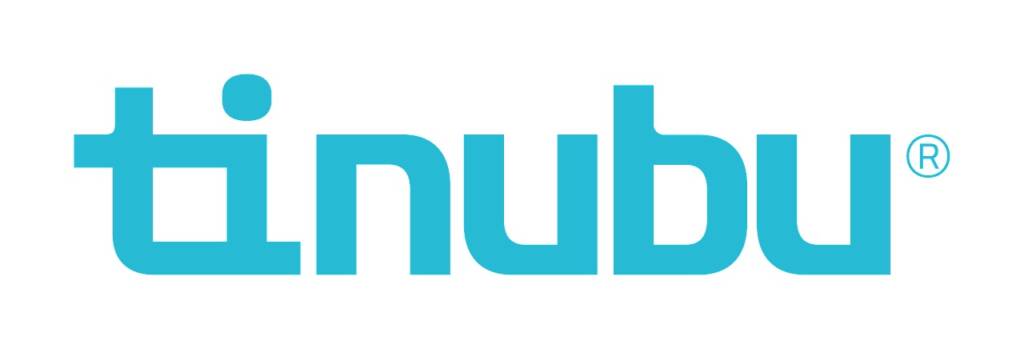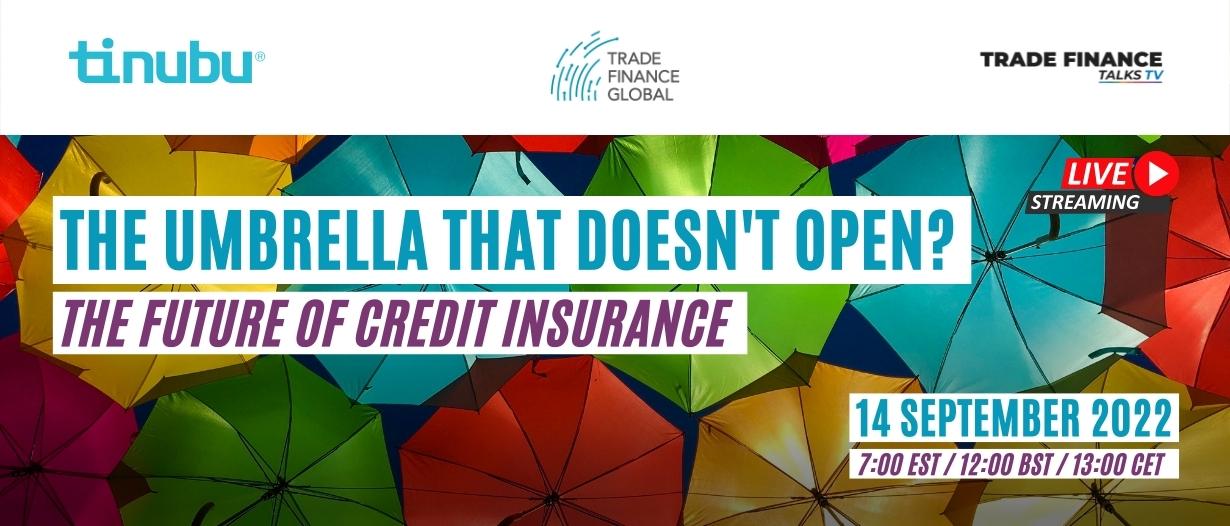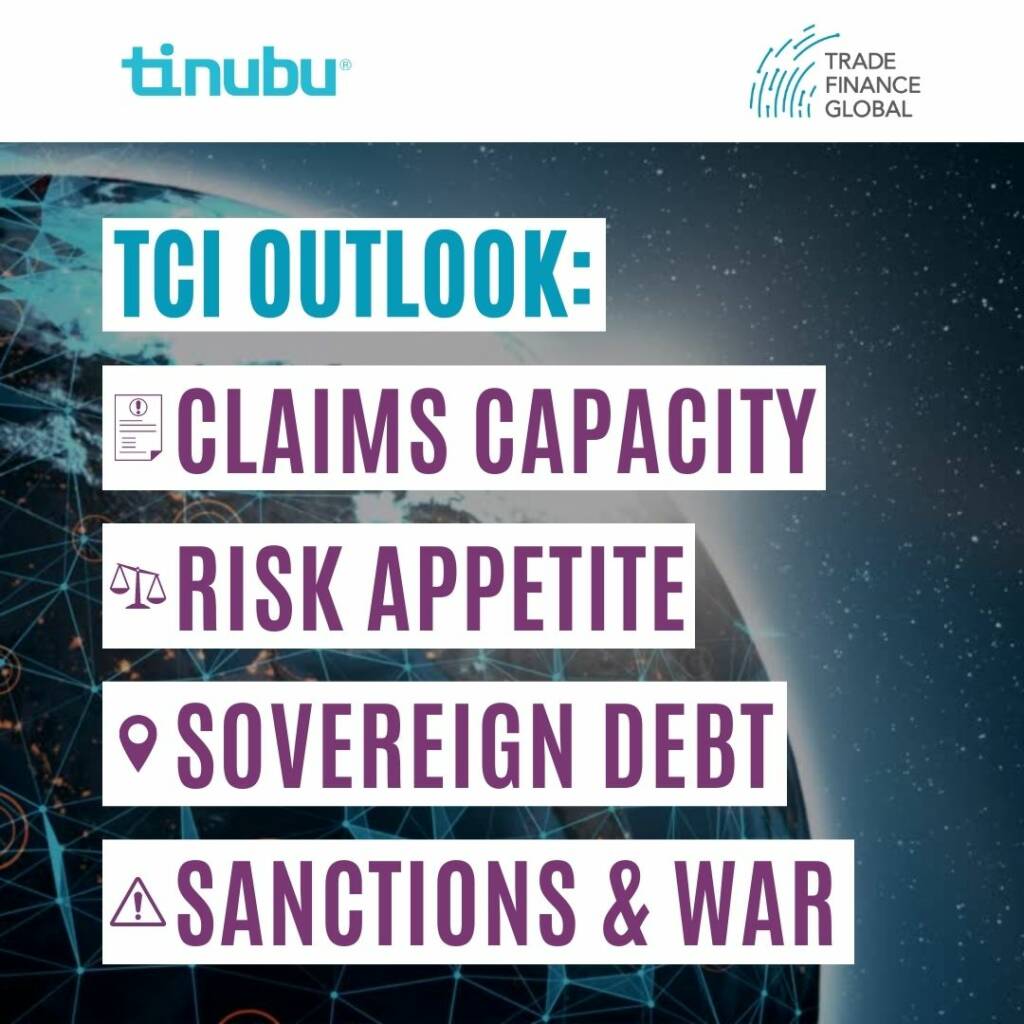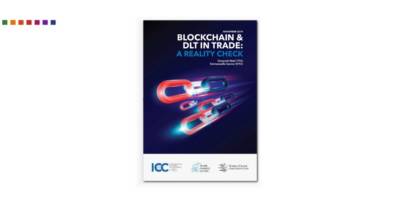The umbrella that doesn’t open? The future of credit insurance
Presented by Trade Finance Global and Tinubu
TFG has joined forces with Tinubu to present a virtual tradecast, looking at 4 different sectors of the trade credit insurance industry, and how they have been impacted by the COVID-19 pandemic, geopolitical issues and inflation.
The tradecast will touch on:
- A trade credit insurance industry outlook
- How public and private credit insurance support global economies and trade
- Risk appetite, claims, payouts: how to make trade credit work for everyone, everywhere
- Outlook, innovation and sustainability in trade credit insurance
- Expert perspective: banks & lenders, insurtechs, associations, and ECAs
The Panel




Moderated by Deepesh Patel, Editor, Trade Finance Global
864 viewers
Live Tradecast
75 minutes
Streamed on LinkedIn Live
Sponsor

Introduction
- Introduction to the panel
- Gary Lowe, global head, global credit insurance group, Standard Chartered,
- Jérôme Pezé, CEO, Tinubu,
- Janusz Władyczak, CEO, KUKE S.A,
- Richard Wulff, Executive Director, ICISA
- What is trade credit insurance is and how does it underpin global trade?
- Why do banks utilise trade credit insurance?
- How do ECAs work? What is the difference between OECD operating ECAs and ECAs based in developing countries?
Perspectives – trade credit insurance
- How has the market fared with unprecedented challenges around inflation, war and political risk and through the disruption of supply chains?
- There has been a massive wave of states withdrawing their support to private businesses, what do you expect the repercussions of this to be?
- What’s happened from a claims and payouts perspective?
- Has risk appetite changed and how has this impacted claims from a private market perspective?
Summary article: Resilience, technology, and risk appetite: credit insurance experts weigh in on current trends. Read here

Resources
Tinubu podcast: Getting Saas into surety and credit insurance
Insurtech champions – Tinubu Square named to 2021 InsurTech100 list
Risk appetite in the context of claims
- What is the current general consensus on risk appetite?
- How willing are ECAs in encouraging collaboration and sharing risk?
- How will the rise in digitalisation help mitigate common risks associated with credit insurance?

Resources
Under the spotlight: MSME access to finance in emerging and developing markets
Whitepaper: Accelerating trade digitalisation to support MSME financing
Tinubu Podcast: Future-proofing trade finance and insurance through technology
Where is the industry heading? Future outlook and innovation
- Managing capital and improving returns through less traditional avenues. Thoughts on capital calls, new economy, renewable energy and private equity
- How will customer needs be met in terms of buyers of CPRI?
- How will the capacity of risk evolve and where will this take the market?
Panel Questions and Answers
RW: Trade credit insurance is about helping to finance the whole supply chain. Whilst we do not finance, sellers in every part of the chain can and do buy trade credit insurance which enables their financiers to provide terms.
Response: Thanks a lot. What you said, it is exactly done in traditional sense. Now, we have some digitalized platforms of supply chain, the final buyer or manufacturer applies for credit and the banks issues BPO , this BPO is transferred from one chain (supplier) to the other (instead of each chain asks independently for credit using credit insurance/guarantee). So this BPO will be cashed at Bank’s counter on due date by the last chain (if not discounted in between). Now if a credit guarantee is issued for the manufacturer to receive the BPO, shall CG be transferred along with BPO via chains? Or not at the due date, just the manufacturer is responsible for honoring the debt of BPO? And if the debt is not paid, then CG will be called.
RW: Interesting thought! Would need some work as the insurance is assessed on the payment of the next debtor/link in the chain.
JP: Likely stagflation (recession+inflation), potential stress on public debt issued by already highly indebted countries, and -with a time-lag- increase of defaults by corporation in Europe, in a tense social environment. A key element regarding the timing and the extent will depend on governments and BCE policy.
Thank you to our sponsors and partners

More from the TFG’s Trade Credit Insurance Hub
- Quor and ClearDox partner to grow commodity trading solutionsQuor and ClearDox announce a partnership to enhance digitalisation and automation in commodity trading solutions.
- Strengthening Global Supply Chains: The role of digitalisation in enhancing transparency, efficiency, and resilienceIn today’s fast-paced and ever-changing world, the capacity of organisations to keep up with and manage risks across their supply chains depends on their ability to leverage on digitalisation to collect, analyse, and use electronic data to ensure the stability of global supply chains.
- Cleareye.ai and Surecomp partner to enhance AI powered trade finance automationCleareye and Surecomp have announced a new partnership, furthering AI powered trade finance automation solutions.
- Lloyds Bank completes its first WaveBL electronic Bill of Lading transactionLloyds Bank has completed its first transaction using an electronic Bill of Lading (eBL) on the WaveBL trade documentation platform.
- ICISA and AMAN UNION partner to boost credit insurance initiativesThe International Credit Insurance & Surety Association (ICISA), alongside the forum that unites Insurers and Reinsurers of Commercial and Non-commercial Risks from Member Countries of the Organisation of Islamic Cooperation (OIC) and the Arab Investment and Export Credit Guarantee Corporation, known as AMAN UNION, are pleased to announce their Strategic Partnership Agreement.
- PODCAST | Beyond the basics: Breaking down digitalisation with EnigioTFG’s Brian Canup was joined by Patrik Zekkar, CEO of Enigio, to break down the complex next steps of digitalising trade.
- The ESG challenge for African credit insurersExplore the unique challenges and opportunities of integrating ESG principles in Africa. Learn how holistic approaches can drive sustainability and resilience.
- PODCAST | Africa focus: Afreximbank on empowering women in trade, treasury, and paymentsTo learn more about the challenges that women face in the trade, treasury, and payments space across the African continent, and some of the programmes in place to help balance the scales, TFG spoke with Gwen Mwaba, Director and Global Head of Trade Finance at Afreximbank.
- EU’s Late Payment Regulation: Exposing the need for better public discourseLearn more about the EU’s proposed Late Payment Regulation, and how this is impacting the trade finance and trade credit insurance industry!
- Monthly TFG & ICC DSI ColumnRead the monthly TFG and ICC DSI column! Hear from leading experts in trade digitalisation and keep up with all the breaking trends.
- SBA enhances Surety Bond Guarantee limits, aiding small businesses in contract opportunitiesThe SBA will extend its guarantee coverage to include bid, performance, payment, and ancillary bonds up to $9 million for general projects and to $14 million for federal contracts, an increase from the previous limits of $6.5 million and $10 million.
- WaveBL and Federal Bank partner to streamline digital trade, announce successful transaction in IndiaFederal Bank partners with WaveBL to advance trade finance in India. Explore the advantages of digital trade and blockchain technology.
 Australia
Australia Hong Kong
Hong Kong Japan
Japan Singapore
Singapore United Arab Emirates
United Arab Emirates United States
United States France
France Germany
Germany Ireland
Ireland Netherlands
Netherlands United Kingdom
United Kingdom


































Comments are closed.